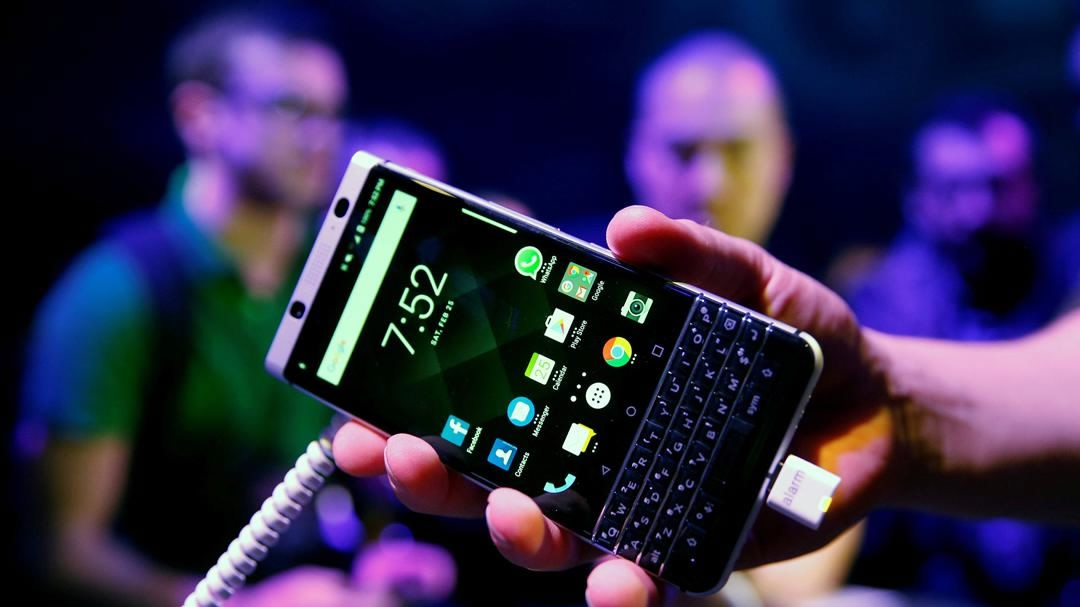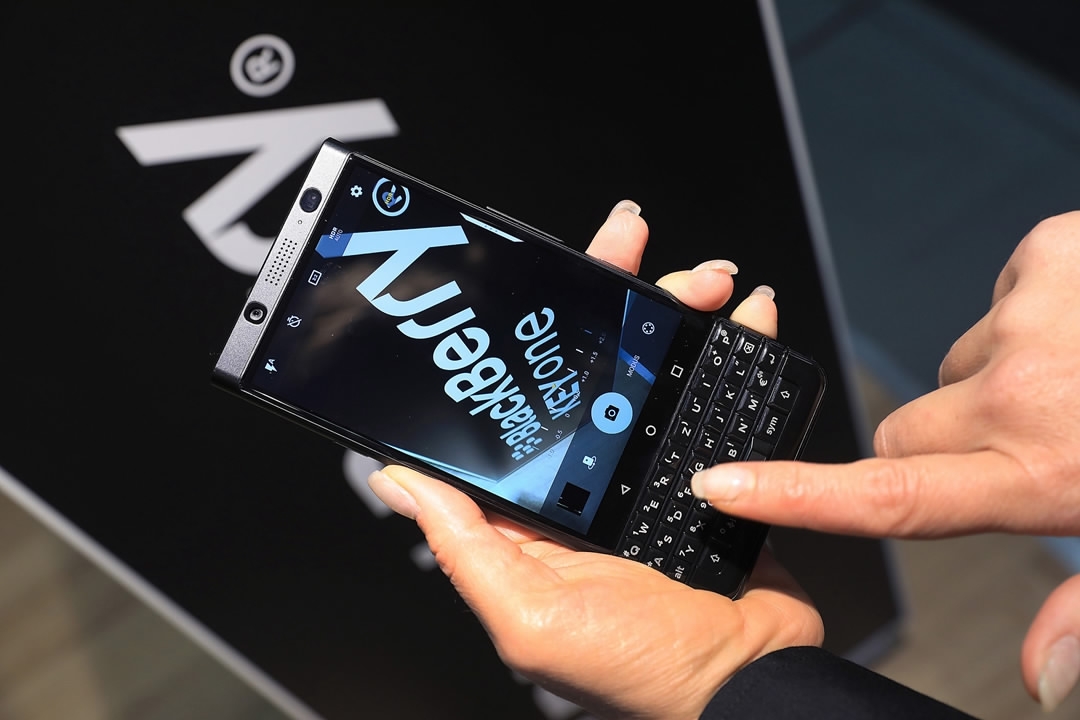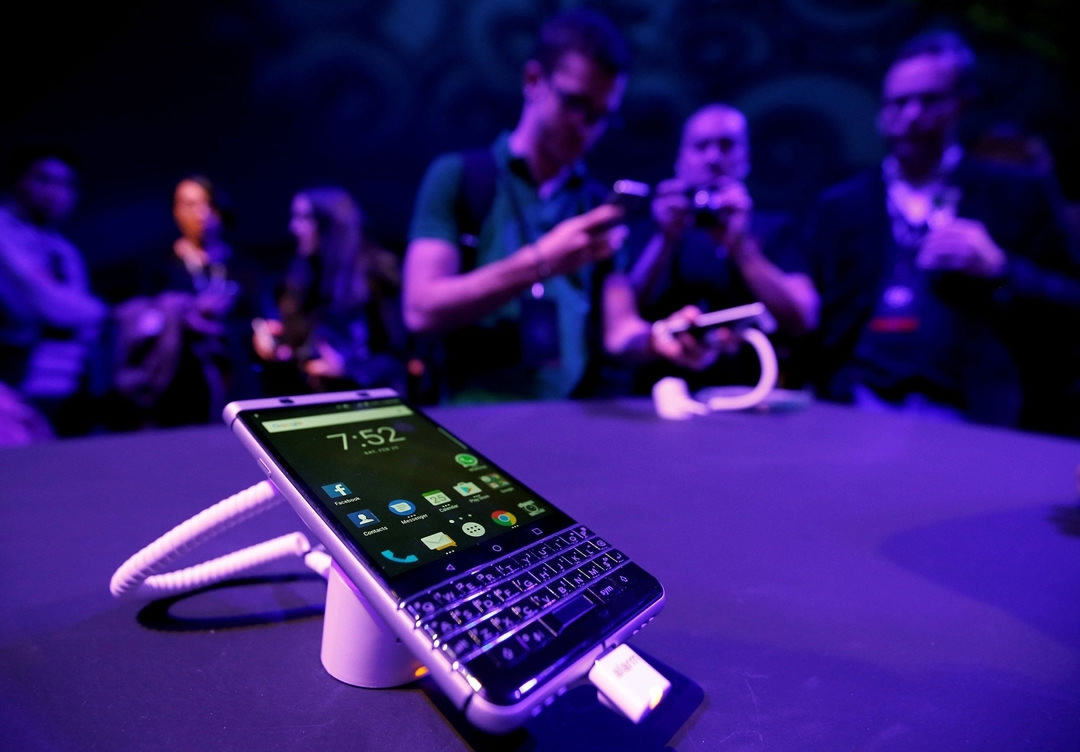
Business
07:59, 29-Sep-2017
BlackBerry shares soar as software sales hit record
CGTN

Canada’s BlackBerry Ltd reported stronger-than-expected quarterly profit on Thursday as high-margin software sales hit a record, boosting investor confidence in its turnaround and sending shares up 14 percent.
Software and services revenue rose 26 percent to 196 million US dollars in the second quarter ended August 31 from a year earlier, above the average forecast of 175 million US dollars of two analysts polled by Reuters.
The results bolstered hopes that Chief Executive John Chen was succeeding in rebuilding BlackBerry, whose revenue has declined for seven years as its smartphone business collapsed. Chen has discontinued handset manufacturing and focused on selling software to industrial companies, governments and corporations.
“Obviously a very good quarter for the software business, which is a good sign for BlackBerry,” said Nicholas McQuire, an analyst at CCS Insight.
The company reported quarterly profit of 5 cents a share, excluding special items, versus a break-even forecast by analysts.

An attendee uses the camera on a Blackberry Keyone smartphone at the IFA Consumer electronics show in Berlin, Germany, on September 1, 2017. /VCG Photo
An attendee uses the camera on a Blackberry Keyone smartphone at the IFA Consumer electronics show in Berlin, Germany, on September 1, 2017. /VCG Photo
Quarterly software and services revenue was buoyed by a sharp increase in licensing fees, to 56 million US dollars from 16 million US dollars a year earlier.
Licensing will eventually contribute about as much revenue as BlackBerry’s larger enterprise software business, Chen said in a call with reporters, according to Bloomberg News.
Chen told BNN television that the company hoped to close another autonomous-vehicle software deal directly with an unnamed carmaker later this year, which would follow a deal inked with Ford Motor Co last October that has started to produce revenue for BlackBerry.
“There’s some exciting growth opportunities,” Morningstar analyst Ali Mogharabi said, citing progress in getting BlackBerry technology into self-driving cars.
The company said on September 20 that it would partner with auto supplier Delphi Automotive Plc on a software operating system for self-driving cars, sending its shares up 9 percent that day.
BlackBerry could earn licensing fees of 5 to 25 US dollars per car with advanced self-driving technology, up from the 1.5 to 5 US dollars it earns for just providing infotainment systems, Chen said on an analyst call.

A new BlackBerry Key One is displayed during his presentation event before the Mobile World Congress in Barcelona, Spain, on February 25, 2017. /VCG Photo
A new BlackBerry Key One is displayed during his presentation event before the Mobile World Congress in Barcelona, Spain, on February 25, 2017. /VCG Photo
Some investors said it was too early to call the turnaround a success.
“The company is at the intersection of some interesting trends ... but it’s still early days for them,” said Lori Keith, a portfolio manager at Parnassus Investments, which does not own BlackBerry shares.
Waterloo, Ontario-based BlackBerry said it expected adjusted full-year revenue of 920 million to 950 million US dollars. Analysts on average had forecast 924.4 million US dollars, according to Thomson Reuters I/B/E/S. It also forecast meeting its software sales growth target of 10 to 15 percent.
Licensing revenue for its software and brand name include royalties on BlackBerry-branded devices sold by China’s TCL Communication Technology Holdings Ltd and Indonesia’s BB Merah Putih.
BlackBerry also said on Thursday it signed a new deal for a Chinese manufacturer to sell BlackBerry Secure-branded devices starting early next year.
The company posted quarterly net income of 19 million US dollars, or 4 cents per share, compared to a loss of 372 million US dollars, or 71 cents a share, a year earlier. Total revenue excluding items fell 29 percent to 249 million US dollars.
Source(s): Reuters

SITEMAP
Copyright © 2018 CGTN. Beijing ICP prepared NO.16065310-3
Copyright © 2018 CGTN. Beijing ICP prepared NO.16065310-3